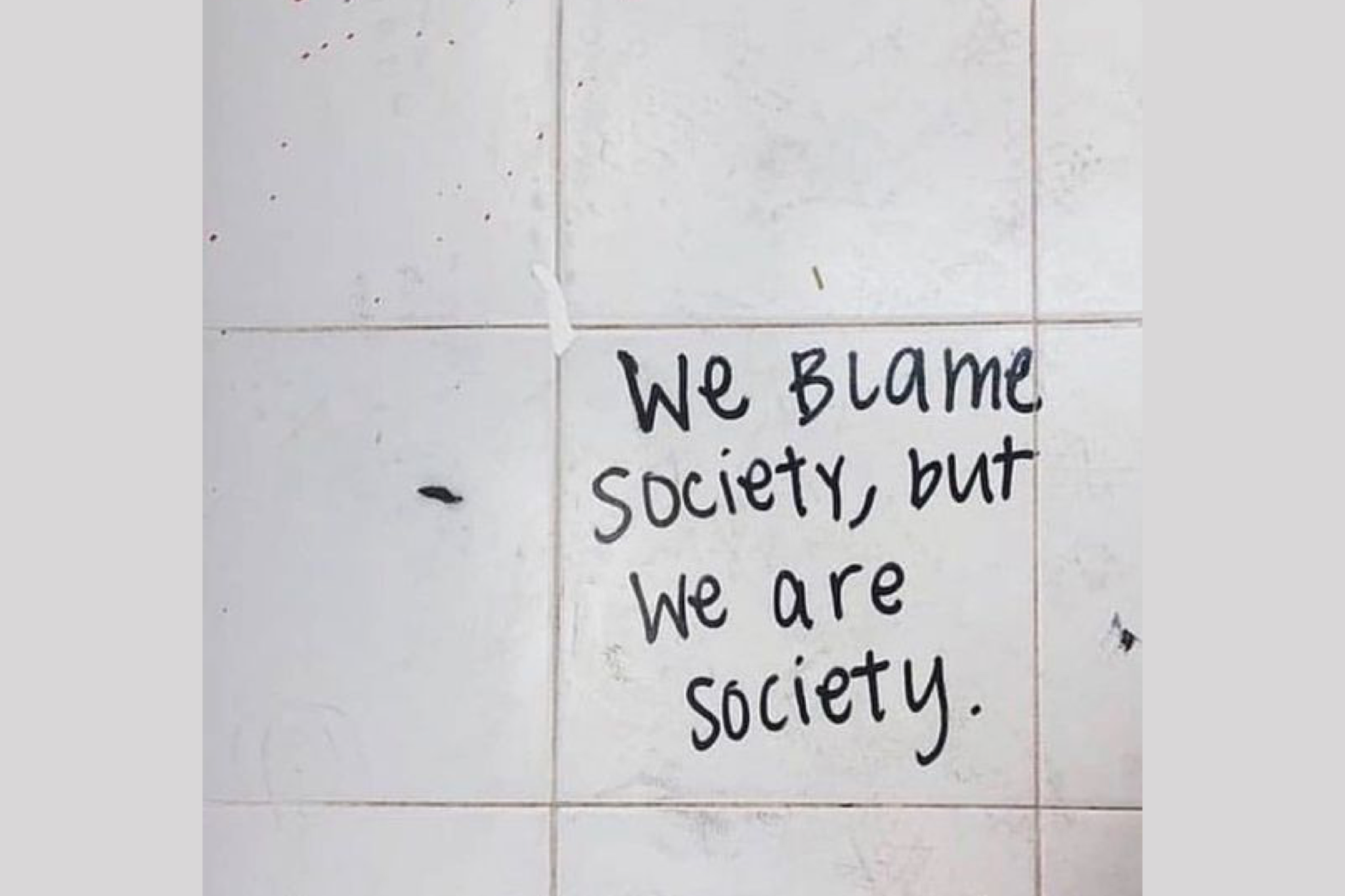
Over the last few weeks, while the citizens of this country and other countries fight against racial injustice and inequality, I have seen an immense increase in the amount of racial quotes and resources shared. One quote that’s been circulating over and over again, is by Angela Davis: “In a racist society, it is not enough to be non-racist, we must be anti-racist.”
White people have come to the stark and painful realization that many of their friends, coworkers, family members, and neighbors have a different lived-experience because of the color of their skin. Many people that I follow have been expressing that they have unconsciously turned a blind eye, or genuinely weren’t aware of these racial inequalities, and are finally waking to the idea of where the work really lies: anti-racism. And while I fully commend, support, and agree that we must be ANTI-racist in the pursuit of eliminating white supremacy—there’s a lack of accountability that feels problematic.
How can you assume you aren’t racist? Is it fair to skip over the giant step of self-assessment, which entails reviewing one’s history, thoughts and internal bias, to immediately join the fight against racism? I’m not implying that we shouldn’t be fighting against systemic racism now, but while we do that, we also need to look inward, because that is where the *real* very vulnerable, shameful, and painful work lies.
In an effort to navigate this work, we need to learn (and then unlearn) conscious and unconscious internal racism, and so I’m opening it up to our community: In what ways have you been complicit in upholding a white supremacist society? Because while it might be easy to blame society or our government, we are our society and we voted for our current government. For real change, we must look inwards and ask ourselves how we’ve been complicit. We must excavate our ugly in order to create the beauty we wish to see in the world.
How have you been complicit?
Comment down below.






I think back to family dinners at my grandfathers house where he would tell racist jokes at the dinner table. Whenever he would tell a joke we would awkwardly push our potatoes around on our plates. The room was filled with nervous laugher and silence, the rolling of eyes and head shakes, rather than speaking up to him in the moment, saying “This is intolerable. This is not okay.”
As a British Indian Londoner, I only began to realise I myself was being ‘white’ when I went through my Transpersonal Art Therapy training and slowly started to embody the value and importance of being authentic. So many inner ancient biases were bought to light through art-making and ancient stories full of wonder. As I artistically uncovered the ugly lies I carried in my thinking and beliefs system, the more I was able to discern what felt good and wholesome and more inclusive.
Now, I don’t call it ‘white male patriarchy’ but the violent attempt to industrialise the human soul! And I’m consciously and rightly angry about this (because it hurt me so much and I see it hurting my friends and family, and people unable to defend themselves). This means I’m willingly questioning everything I once believed blindly, and allowing myself to see and hear more clearly.
I sense that if I can open up to knowing what it is that unites us And allows for individuality of all, then when I speak, people will feel my authenticity and hear me clearly. I have to speak out against the white-washing that’s taken over the South Asian community; hopefully in a way that’s full of wonder, beauty, and humour even. Dreams suggest ‘humour’ is the way through this call-to-change.
Outside of calling Black people colored people I don’t remember my parents in the 1950s discussing race much. We lived in the country and our neighbors were a Back couple living a half mile down the road. During the summer they had two girls from the city about my age stay with them. They would come to our farm to play. I couldn’t understand why my step-mother who was a kind person wouldn’t allow them use the inside bathroom. They had to use the outside john that we used in a pinch ourselves when the well went dry which was rare. It wasn’t until I left home I learned what racism was. To this day I’m feel privileged to have played with the girls every summer. I think it began to show me to be anti-racism.